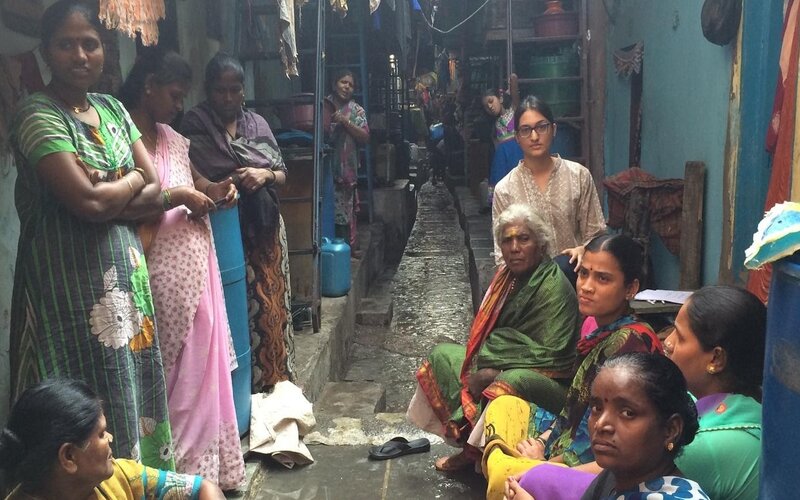
A new study led by Saloni Atal focuses on mental ill health among low-income women in Mumbai
Our data clearly suggest that there is a parallel need to address the social and ecological factors that are perpetuating women’s suffering.
Saloni Atal and Juliet Foster
The mental health of women in low-income settings in India is affected both by everyday issues and by gender-related stressors, particularly around motherhood, poverty and domestic conflict, according to a new study that seeks to document women’s own accounts of their mental health.
The study, “A woman’s life is tension”: A gendered analysis of women’s distress in poor urban India, just published in the journal Transcultural Psychiatry, is led by Gates Cambridge Saloni Atal [2017 ]. It argues that there is a shared, transnational character to women’s mental distress and calls for research into women’s mental health in low-income settings to be more attuned to gendered forms of marginalisation.
The mental health of women living in poverty is a growing public health concern, particularly in India where the burden of illness is compounded by critical shortages in mental health providers and fragmented services. However, there is little research on how such women understand mental illness.
The study examines low-income women’s perceptions of mental illness in Mumbai and explores how that illness is managed in marginalised urban communities. Through focus group discussions and one to one interviews using social representations theory, it emerged that women use the expression “tension” to talk about mental illness. Tension was described both as an ordinary part of life and a condition having its origins in more profound gender-related stressors, particularly pressures surrounding motherhood, chronic poverty and domestic conflict.
In their efforts to manage tension, women relied on their own psychological and social resources and did not see it as necessary to seek professional help. Advice seeking and unburdening through sharing with friends and kin were most frequently discussed as strategies to alleviate tension.
Several respondents emphasised the importance of thinking positively and actively reframing their life situations. The workplace was also discussed as a source of distraction from domestic tensions by respondents who were in some form of employment.
The researchers said that, although these might appear to be positive coping strategies, for many respondents they were shaped by expectations that women “manage” their problems.
Some women drew on group-based support networks, but few asked for help from their medical doctor.
Women also referred to pagalpan or madness, a more extreme form of tension which was described as having its origins both in psychological and social factors.
The researchers state: “Tension is directly tied to the material conditions of women’s lives and misogynistic norms that govern their behaviour in the private and public sphere. Women take a pragmatic and pluralistic approach to managing their mental health, placing emphasis on fulfilling gender roles rather than on accessing medical experts.”
They say the health-based approach to mental illness may not be wholly effective for these women. They state: “Our data clearly suggest that there is a parallel need to address the social and ecological factors that are perpetuating women’s suffering. This may require activities outside the formal health sector that are aimed at community empowerment and social development.”












